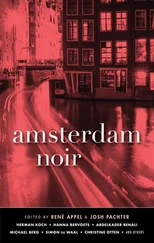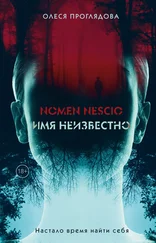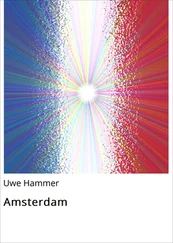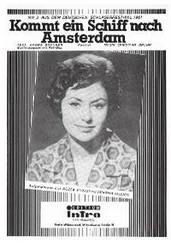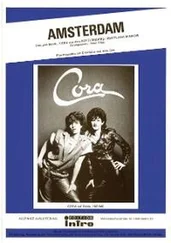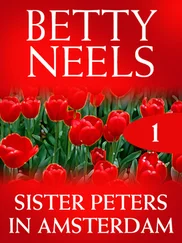And at the end of the fields you could still just make out the Zuiderzee dike. The countryside was so melancholy in the November twilight, with the square Ransdorp church tower in the distance and the rows of tiny houses on either side taking leave of the day as reluctantly as if there would never be any light again after this twilight. It would be like that when we died, just a little while then everything would be over, and we were very sad. But Bavink said that he still had one or two things he wanted to do. The yellow in the water had turned to pink. A ways farther, there was a plot of farmland outside the dike, and down in front, on the dike, was a short row of trees, behind it the rich plowed soil, black and glimmering. And then we thought of the spring to come, after this winter, and we felt immortal again and not the least bit sad, not anymore.
2. On Retreat
In late fall the following year, Bavink and Hoyer rented a little abandoned house in Schellingwoude on the Outer IJ dike. The plane tree in the garden behind Bekker’s office was down to its last leaves.
It was quite an uncomfortable place they had found. In front, the water; behind, endless pale-green soggy fields with nothing in them and the stumpy Ransdorp tower in the distance with the shivering houses huddled around it.
A couple of scrawny, windswept trees, black and bare, lived their poor little tree-lives on the outermost edge of the dike in front of their house.
Everything looked like it was just waiting to be flooded, but the dike was strong. It only broke a few years later, and somewhere else. [1] A later addition.
The house was always drafty and they took turns sleeping with Hoyer’s overcoat on. And you couldn’t buy anything on credit in Schellingwoude.
On Saturday afternoons, Bekker and I went out there, an hour and a half walk from Bekker’s office. We usually had to bring something, a box of cigars or a flask of liquor, or brushes or paint or something else you couldn’t get in Schellingwoude.
Bekker always brought some book or another with him, and newspapers, but mostly the Schellingwoude doctor read them. Bavink and Hoyer took a glance but only cared about the pictures in Simplicissimus and Le Rire .
For months they never left the village. Bavink, numb with cold, sat down by the sluice and painted; Hoyer, with mad idealism, walked for hours in the mist along the winding sea dike, to Uitdam and beyond, and never complained when there was nothing to drink, and loaned Bavink his light coat, and didn’t notice when his feet got soaking wet. In the morning he sat on the edge of his bed and rubbed the dried mud out of his socks and was content. Hoyer lived like a saint — a sketching, painting saint.
For weeks he was blue with cold, whole days went by when he hardly spoke a word since there was no one to say anything to, Bavink painted or slept, and still Hoyer never complained, he didn’t long for Kalverstraat in the city, or his bar, or girls.
Bekker was convinced it wouldn’t be much longer now before we astounded the world.
It was over with Lien, she had moved up in the world. One time, on a sunny afternoon in February, she came over on the little ferry. A childlike February sun was shining. She had on expensive clothes and a hat with a yellow-gold feather that cost more money than Bavink had ever gotten for one of his “little things.” Bavink was sitting down on the dike, on the pilings, painting; the saint squatted next to him, right on the water, scrubbing the grease from a pan with a stone in the brackish water of the Outer IJ, they were not too particular.
The moment they saw Lien they decided to take the afternoon off. Bavink had been wrestling with the Outer IJ for three months and had just about had enough. And there was Lien, sitting in the middle of the room on their only chair and looking first out the window on one side at the fields and then out the window on the other side at the scrawny trees and the light blue water, and in the sun like that the world really did look quite nice. And Bavink and Hoyer sat on the floor with their backs against the wall and smoked clay pipes and looked up, full of quiet contentment, at Lien and Lien said there was a draft.
Hoyer said he’d never noticed anything — Hoyer, who used to never sit on a stone curb because it was too cold!
Then Hoyer went out and took Lien’s purse and Bavink just looked and admired and continued to say nothing. Lien sat with one leg crossed over the other and she placed the tip of her umbrella in a crack between two boards on the bare floor and stretched out her arm and looked at the water and down from the water to the tips of her shoes and then up into Bavink’s eyes. Then Bavink looked into her eyes and took his pipe out of his mouth and said: “Lien, you sure look pretty. If I had it to do over again … and with those pretty clothes and everything, and that hat….”
Lien turned bright red and poked him with her umbrella, which almost made her fall off her chair.
Then Hoyer came back with a half dram of old jenever and a beer bottle full of eggnog for Lien.
Everyone was in a good mood till four o’clock. “Hey, Lien,” Hoyer said, “do you know how to get the grease off a pan? I tried it with a pumice stone down on the dike but it didn’t work.”
“You need hot water, dummy.”
“That’s what I thought,” Bavink said. “It was taking too long, I knew something was wrong.”
Then Lien said they were hopeless and she took off her nice clothes, tied one of Bavink’s coats around her waist, and went into the kitchen like that, in her slip, and washed the pan. And then she saw a stack of about thirteen dirty plates and two half-plates. She washed them all and wanted to throw out the half-plates but they wouldn’t let her, why throw out a perfectly good half-plate?
The pan had never been cleaned. They usually only cooked rice in it anyway.
But at four o’clock the farm children got out of school and pressed their little farm noses against the windows so that all you could see were little white triangles all over and they wouldn’t leave. There were no curtains.
And when Bavink and Hoyer took Lien back to her ferryboat, at four thirty, there were two men standing at the crossroads by the sluice, and they said “Well, well,” and then looked as though they hadn’t seen Lien at all.
Not long after that, I ran into Bavink in the city. He had Hoyer’s overcoat on and smelled of bread. I thought that was strange. I asked if Lien had come back again and he shook his head no. He was resigned: “What can you expect when you’re broke. Hey, look at this.”
He unbuttoned the top button of Hoyer’s expensive coat to let me peek inside. “Bread, a fresh loaf of bread. I got it on credit in De Pijp. Hoyer’s out too, I’m supposed to meet him at Muiderpoort at three.”
In Schellingwoude they couldn’t even get bread anymore. Poor though I was myself, I gave them a cash advance on the Outer IJ. Oh, it would work out fine with the money, Bavink’s share of the world we were going to conquer was large enough. I was financing an empire. Empire? I was giving him an advance on a whole universe.
Bavink shuffled down Kalverstraat with his collar up and a bulge under his coat and he was whistling the Marseillaise and he smelled of fresh bread.
July 1914
The third year of the war.
Bellum transit, amor manet.*
I
TWICE the God of the Netherlands shook his venerable head and twice his long venerable muttonchops slid back and forth across his vest.
It didn’t add up. There must be a mistake somewhere. A poet with no hair, that was very strange. The God of the Netherlands hadn’t cared much for poets for thirty years. You could no longer tell what to make of them. Respectable or disrespectable? Impossible to say.
Читать дальше
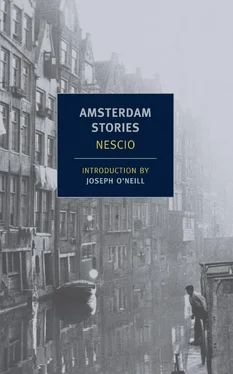


![Олеся Проглядова - Nomen nescio. Имя неизвестно [litres]](/books/391740/olesya-proglyadova-nomen-nescio-imya-neizvestno-lit-thumb.webp)
